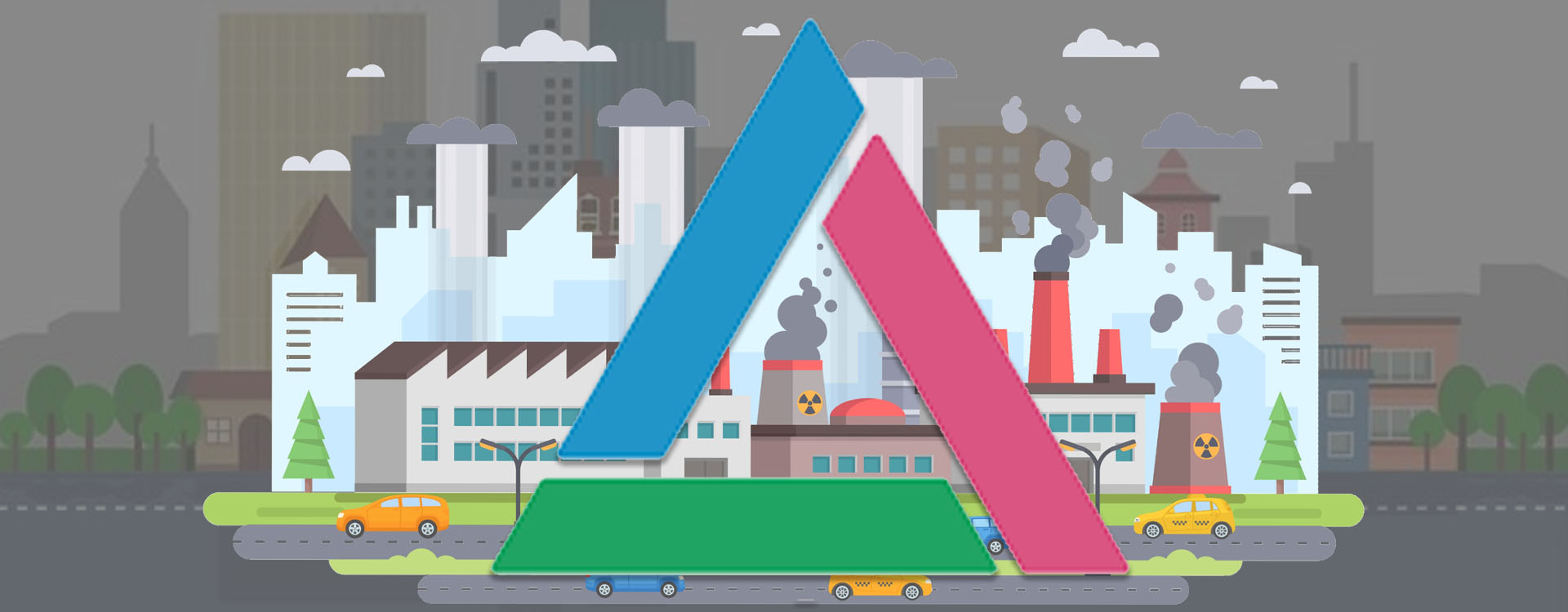Environment intelligence is a new sector of research and enterprise in India. And the few companies and start-ups that are there, are working towards tackling climate change, the crisis and global health issues in very early stages. The air quality index (AQI) in most Indian cities, especially New Delhi, Ahmedabad, Mumbai and Pune, is among the world’s worst. Despite these worrying figures and facts, no significant measures have been taken to dilute pollution and resolve the ensuing crisis.
To combat climate issues, the Bangalore based start-up Ambee aims to use environmental information to provide real-time, high-quality local atmospheric data daily to help understand the effects of pollution. Ambee was set up in 2017 by Akshay Joshi, Madhusudan Anand B and Jaideep Singh Bacher and is an environmental information start-up that measures, processes and analyses local data on air quality in real-time.
Ambee uses an air quality data network whose sensors measure the quality of dust, particles, volatile organic compounds and other measurable control points to determine air quality. According to the start-up’s founders, its developers can integrate environmental data into health devices, fitness apps, air purifiers, smart cities, offices and homes. The company works with a broad mixture of aerospace, home appliance, big data, utility, pharmaceutical and insurance companies.
Analysing Environmental Data across the Spectrum
Ambee’s products generate data of different sizes and requirements. Its API feature works on a subscription model, which uses the model copy of all things and each of the branches of large enterprises to small developers. Besides, Ambee produces products in different segments, like insurance, aerospace, etc. Insurers need to develop a product that uses the information to understand, among other things, environmental risks to their customers’ health, and Ambee is providing them with the data.
‘‘
Ambee aims to use environmental information to provide real-time, high-quality local atmospheric data daily to help understand the effects of pollution.
How Is Ambee Using Artificial Intelligence & Machine Learning
Ambee’s exclusive algorithm is ANN / RNN interpolation versus spatial interpolation through user-defined algorithms. It creates an internal training model with data on parameters such as weather and temperature, wind speed, wind direction, population density, etc.
Ambee’s model can estimate the air quality more accurately and helps them understand the real condition of air. This allows them to suggest the necessary steps, get involved and save time and money. India’s first super-local pollen API has also been released, attracting interest from health and pharma companies.
High Time or No Time – Climate Emergency
According to the World Health Organization, to tackle and trace the worsening climate crisis, governments must install air quality sensors per square kilometre in a nation. As per a report by the Centre for Science and Environment, over 1 lakh five-year-old children in India die from air pollution every year. The crisis is responsible for 12.5% of deaths in the country. India has 14 of the 20 most pollution locked cities in the world.
What’s the catch in Ambee for others to follow?
With India’s clean technology and environment intelligence ecosystem proliferating, start-ups like Clairco, Phoenix Robotix, Chakr Innovation etc., are increasingly interested in solving India’s energy and pollution problems. Ambee is already working with a combination of large and small enterprises across the world, and the company is expecting to ramp up operations in the next 24 months.
The climate is deteriorating at rates we have never witnessed before. More tech-space start-ups and budding entrepreneurs must join forces and enter the industry to deal with the crisis and encourage the science behind entrepreneurship. This is a golden opportunity to not only mint profits but actually help save the earth while doing so.




